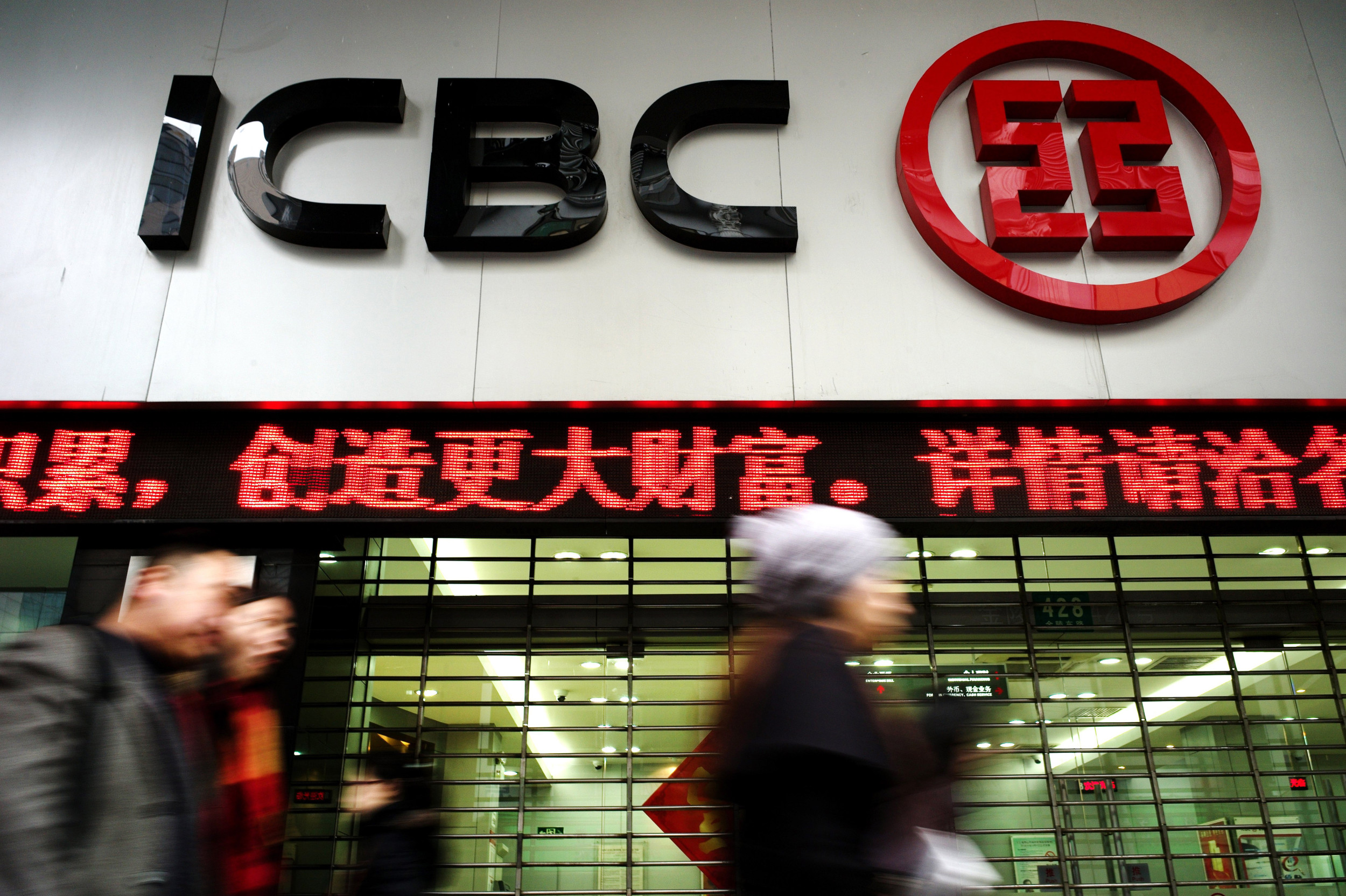The Moscow Exchange (MOEX) has replaced its Chinese clearing bank for yuan payments after the previous bank withdrew due to U.S. sanctions imposed in response to Russia’s war against Ukraine.
The Industrial and Commercial Bank of China (ICBC), the largest bank globally by total assets, has taken over from the Russia subsidiary of the Bank of China, which ceased its role as MOEX’s clearing bank on July 15, reported Russian daily newspaper Kommersant.
However, there is a risk that the ICBC may also exit its clearing role next month when the U.S. grace period for business with MOEX expires, posing significant challenges for the exchange and the broader Russian financial system.
Following the inclusion of MOEX on the U.S. Office of Foreign Assets Control’s (OFAC) sanctions list, the trading of dollar, euro, and Hong Kong dollar currency pairs in Russia ceased. This has led to a decline in trading volumes of the Chinese yuan.
Philippe Lopez/AFP via Getty Images
According to Kommersant‘s estimates based on currency trading data, the average daily yuan trading volume in the “tomorrow” trading mode—where transactions are settled the following business day—was down by one third from June and less than half the value recorded in January.
In August, the risks will escalate for the ICBC, potentially prompting it to withdraw as a clearing house. This is because OFAC licenses that allow banks to conclude operations with the sanctioned exchange will expire, Kommersant cited Russian central bank deputy chairman Philipp Gabunia as saying.
Russian financial market players will still be able to trade via over-the-counter settlements bilaterally with China, Moscow International Currency Association president Alexei Mamontov told the outlet. Nevertheless, the trend away from MOEX will result in a significant loss of revenue from interest and commissions.
Newsweek has contacted the Russian and Chinese Foreign and Finance Ministries for comment via email.
Since being excluded from the global financial system following its February 2022 invasion of Ukraine, Russia has increasingly relied on the yuan for international transactions.
“The China-Russia relationship is allowing China to truly test de-dollarization at scale,” Vincent Deluard, director of global macro strategy at financial services company StoneX Group Inc., previously told Newsweek.
According to Bloomberg estimates, Russia accounted for 29 percent of the rise in yuan-denominated international settlements since 2021.
However, Russian importers in various industries have reported slowed or refused payments this year as sanctions-wary Chinese lenders increase scrutiny to avoid running afoul of the American secondary sanctions.
Last month, the Bank of China stopped processing yuan-denominated transactions with banks subject to sanctions, following similar actions by the ICBC, CITIC Bank, and most other major Chinese lenders.
Uncommon Knowledge
Newsweek is committed to challenging conventional wisdom and finding connections in the search for common ground.
Newsweek is committed to challenging conventional wisdom and finding connections in the search for common ground.

